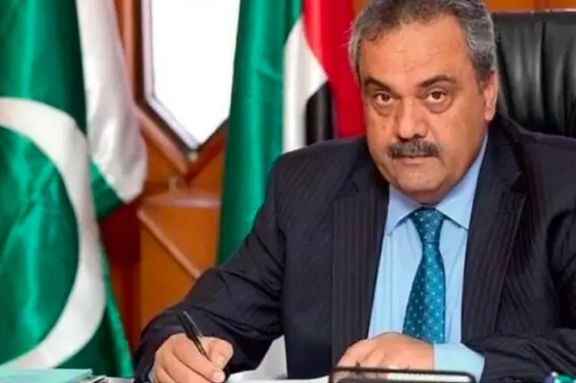Majority of Afghans Oppose Taliban, Says Former Pakistani Envoy

Asif Durrani, former Pakistani envoy for Afghan affairs, has asserted that the majority of the Afghan population does not support the Taliban regime.

Asif Durrani, former Pakistani envoy for Afghan affairs, has asserted that the majority of the Afghan population does not support the Taliban regime.
Referring to the Taliban’s claim of engaging with 40 countries worldwide, he emphasised that the group lacks both domestic and international legitimacy and remains isolated on the global stage.
In an interview on the “Ambassador Lounge” programme, the senior Pakistani diplomat remarked the Taliban must recognise that they remain globally isolated. If they believe they have established relations with over 40 countries, they are gravely mistaken, as none of these nations has officially recognised their rule, he stressed.
Durrani further highlighted that Islamabad’s diplomatic efforts to persuade the Taliban to prevent Afghan soil from being used against Pakistan have not yielded results.
In response to a query about the available options to pressure the Taliban, Durrani noted that airstrikes have been one of the measures undertaken, while closing trade routes proved to be less effective.
He added that the Taliban fully understand that they cannot progress without Pakistan.
Durrani also pointed out that the Taliban face a significant legitimacy crisis within Afghanistan, stating that sixty-four per cent of the Afghan population does not support the Taliban. They must understand that they are living in a glasshouse and should avoid throwing stones, he added.
The former envoy also addressed the contentious Durand Line, commenting:
“Let me make it clear: the Durand Line is neither our concern nor our issue. It has never been part of our policy discussions. It is an internationally recognised border. The views of the Taliban or any other party on this matter are irrelevant—it is their issue.”
The Taliban regime, like previous Afghan administrations, considers the Durand Line to be an “imposed and imaginary” boundary and continues to refuse recognition of it as an official border between Afghanistan and Pakistan.
Durrani recalled that after the international community’s intervention in Afghanistan, several members of the Taliban were arrested in Pakistan and subsequently transferred to Guantanamo Bay.
He remarked that these individuals pose a significant threat to Pakistan.
Key Taliban figures arrested and transferred to Guantanamo included Abdul Salam Zaeef, Mullah Fazl, Khairullah Khairkhwa, Noorullah Noori, Abdul Hakim Haqqani, and Abdul Rauf Khadim. Abdul Ghani Baradar, the current deputy head of the Taliban administration, was also arrested in Karachi, Pakistan, in 2010 and remained imprisoned until 2018. He was released by the former U.S. envoy to participate in the peace negotiations in Doha.
Many of the former Taliban detainees from Guantanamo now hold leadership positions in the group’s political institutions in Kabul.